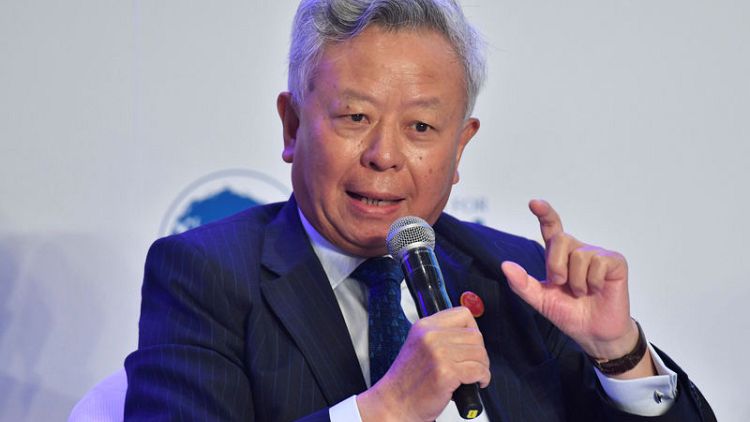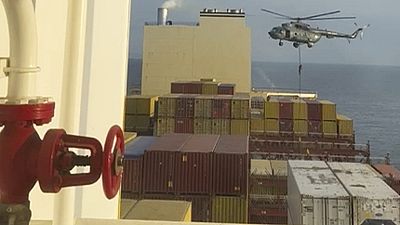By David Lawder
RIYADH (Reuters) - The head of the China-led Asian Infrastructure Investment Bank pushed back on Tuesday against U.S. assertions that China's Belt and Road lending has unfairly saddled poor countries with unsustainable debt.
Jin Liqun, AIIB's president, said during an investment conference panel discussion that debt problems associated with China's massive infrastructure drive were often the result of long-standing fiscal mismanagement.
"The debt problems of these poor countries were accumulated over the years. I don't think it's fair to put it down to the Belt and Road initiative," Jin said at the Future Investment Initiative conference in Riyadh.
He appeared on a panel with World Bank President David Malpass, who as a senior Treasury Department official in the Trump administration was highly critical of Belt and Road lending, telling the U.S. Congress in December 2018 that it "often leaves countries with excessive debt and poor-quality projects."
Jin defended the program's purpose as being aimed at upgrading infrastructure to improve the growth and development potential of many countries.
"But we should learn from the history. For many countries I think the issue is not whether you borrowed the money from outside, it's how you spend the money you borrow," Jin said. "You spend it well or not."
He said China borrowed heavily from external sources over the past 40 years, but spent the money "judiciously" and never experienced a debt repayment problem.
"You need to look at the debtor. The debtor will speak for themselves," Jin said. He added that multilateral development banks such as the AIIB and World Bank help debtor countries prioritize which projects they should pursue and which can wait.
Malpass agreed that it was important to invest in quality projects that benefit a country's population and said there needed to be more transparency in infrastructure lending, including the collateral, liens and other terms to avoid hidden clauses in contracts.
"The debt burden has been going up so fast that the end result has been quite a few projects that the people of the country didn't need," he said, without naming specific cases.
In 2017, Sri Lanka handed control of its Chinese-financed Hambantota port to Beijing as it struggled with $8 billion in debt owed to Chinese state-controlled firms. In 2018, Pakistan scaled back a Belt and Road railroad project to cope with mounting debt.
(Additional reporting by Saeed Azhar in Riyadh; Editing by Dan Grebler)



